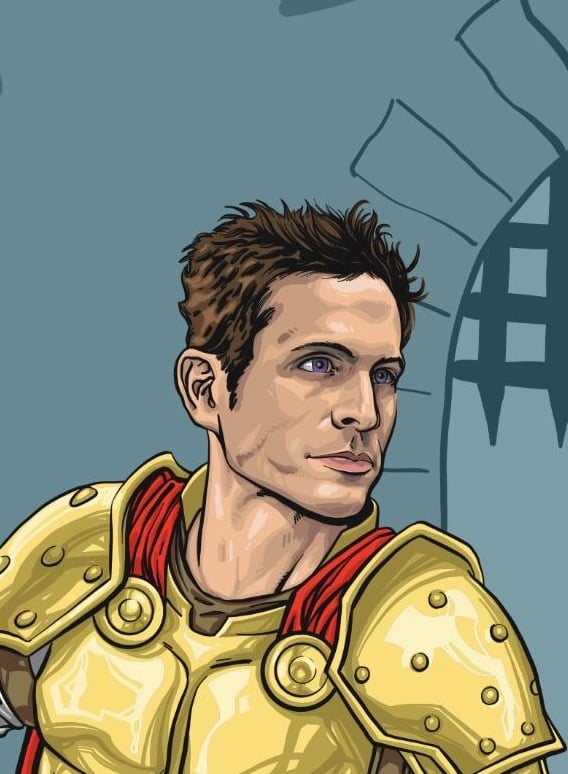Cars fulfill a very self-indulgent narrative. ‘I get to decide where and when I travel’, makes people feel “free” snd “important” even when millions of them are silently coming to the same decisions-- like going downtown at 09:00 on weekdsys-- that allow huge efficiency plays.
Notice how many ads feature fantasies of open roads and trips to faraway attractions, not the real world of “I need to sit in rush hour traffic from 6:30 on to get to the Work Factory”
Maybe public transit needs to focus its message on the freedom from drudgery it offers-- you don’t have to be staring at the driver in front of you, scanning the traffic reports
Exactly! This is why I love micromobility and quality public transit so much. With micromobility like electric scooters or bikes, I can zip past traffic in the protected cycle lanes in my city. With the frequent metro service in my city, I know I can show up to the metro station at basically any time and know it’ll be a max 5-minute wait for the next train. And when I’m on the train, I can just chill and scroll on my phone or read a book instead of stressing about traffic. The freedom to think about something that isn’t traffic.
Unfortunately as it stands in some places the infrastructure is awful. Take England for example; catching a train to London takes about 20 minutes for me, however there are often 10-15 minute delays that you now have to start accounting for, you also have to sit in a cabin with someone blaring their music that isn’t to your taste. Hopefully you’re not in a cabin with a toilet, because it’s going to stink of shit.
Now the return journey, fingers crossed it’s not cancelled otherwise you have another 40 minute wait for the next train! Last train home is a real anxiety inducing experience, will you be getting that train home or has it been cancelled? This is unfortunately all too common here. Sadly because public transport is for profit rather than a necessary service we have someone trying to do the bare minimum to make that money, and then pay the bare minimum to their staff who don’t give a shit. It all begins to unravel and people just have a better experience sat in that morning traffic which is a more consistent and pleasant experience to the public transport.
The problem is once they started to turn public transport into for profit, there is little way to turn back. They invite private companies to build the network, do the operation, now how can they go back to be non profit to be a public service to the people ? Unless they do subsidise fares which will look like they are siphoning money from government to private companies. It’s a no winner situation. If the government wants to nationalise the public transport they will have to spend a significant amount of money to buy them off , which may or may not be affordable to them.
Not to mention that well built mass transit achieves the same level of freedom. You’ll wait 5 minutes for the train and away you go.
I’d say it is more about
convinceconvenience. You decide when you leave and you leave from your door. You don’t risk being late to work because you missed the train by 1 minute (baring queues, but you get the point).This can also be achieved by high frequency transit.
Yeah, if the train comes every five minutes, that’s going to be way more consistent than traffic over time.
Every five minutes is not enough, every minute is definitely needed for rush hour. Thankfully, I live in London where tube trains come every minute, yey!
Really depends where you live. In my town I also decide when I leave, and I don’t risk being late because I missed the train by one minute. I’ll just take the next one. More risk of being late because of car traffic.
The problem when people compare cars to public transport is that they compare the current state of public transport in their area. We need to compare what would happen if we were spending as much billions as we do on cars.
If I’m doing a short trip locally in the city, I get that convenience out of my bike. There are times I would have taken a taxi somewhere, but when the app told me how long it would take for my driver to arrive, I just end up cycling there (often rolling past some long lanes of traffic in the process). That process can be even better if a city is built with safe biking paths.
Unfortunately that’s super weather dependent and seasonal. Plus, some of us would be a sweaty mess by the time we biked to where we needed to go.
Bikes don’t have to be seasonal. Some Nordic countries have well maintained and plowed biking networks and they see significant use throughout the winter.
I get heat warnings every other day lately, and unless it’s the rare cloudy day my UV index is at the top of the scale. I don’t worry about snow here, I worry about heat and sun. I don’t see a good solution for that unless you want to build covered bike routes with ventilation fans all through the metroplex?
That’s an unfortunate aspect of global warming I don’t see talked about a lot, as more places approach wet bulb, any kind of physical activity outdoor will become deadly.
I would’ve expected winter time to invalidate options of bike transport, but in city areas where the snow doesn’t stay down, it doesn’t end up happening as much. You’d of course want to bundle up for the weather, but then it’s not so bad. NJB has even talked about how there are some areas of the world that have permafrost under them, and they still prefer bikes. Rain, in my experience, is just miserable either way, so I’d usually prefer the flexibility to go when a downpour has halted rather than keeping a dedicated roof-mobile around to force my way through. That said, buses have been great for rain too, so again, flexibility.
The sweaty mess remark matches with my experience when I was unused to cycling, and when going uphill. The former becomes less true after even just a week or two of experience on the pedals; I didn’t even need a ton of acclimation after recovering from a leg injury. The latter may be a symptom of poorer city planning - which prefers bikes treading flatlands for long distances. It shouldn’t end up being tiring when you’re basically moving your legs in a walking motion at a low pace (traveling for chores is naturally going to be very different from the Tour de France).
At my old job we had showers there, so in the morning I’d just grab a quick bite and pedal off with my change of clothes in my backpack, and shower when I got there.
deleted by creator
Big Auto has been destroying any idea of high speed rails for decades. Our trains are complete trash because of car lobbyists.
Muskrat is one of the biggest ones to blame.
And they expand the roads and freeways to have rails literally no place to go
Denver has decent rail, but I have to walk/bike across this insane hellscape of cars trying to kill me for 1 1/2 miles to get to the station
I love good public transport. It’s great to not have to worry about parking or having to drive. Good cities, like many in Europe and New York in the US, a car isn’t really required.
But out in the countryside, a car is a must. Electric cars are massively better for the environment and way cheaper to run (like tenth the cost with a night rate).
Because North Americans were tricked by the oil and car companies in the 50s to think that car ownership was part of being human, and now we’re addicted to sitting in traffic, breathing fumes, and killing pedestrians in the name of muh freedom.
Cars can pick me up 10 feet from my front door(my car). No train tracks within 5 miles of me. I would love if their were tracks closer.
since wen this sub is full of carbrain? like bruh.
It’s on the front page and it’s got an unbelievably stupid title.
I am amazed as well. Did they just sub every community with the word ‘car’ in it?
no idea but its just sad. even the reddit version is beter.
Yeah what is going on? Seems like every other comment is full on car-brain-cars-are-freedom insanity. No enough orange pilled people here. Is the opposite of the orange pill the sad grey pill?
wtf are you saying?
Making up slurs like “carbrain” for people who think differently than your echo chamber is fuckin’ lame as shit. You look gross from the outside, FYI. Found this post by sorting my “All” feed by Hot, not a member of your echo chamber.
its how they are called on the original sub.
Carbrain can be pretty succinctly defined as thinking this tiny little online community is the echo chamber, and not your entire car-default existence in your car-default country with your car-default parents neighbors teachers transit networks and policies
OK sure, you’re the majority. Let me know when you succeed in remodeling all the metropolitan areas of America with your great influence.
Until then, I’ll be happily driving around to wherever I please in my cars or on my motorcycle.
Yeah, I’m not sure you read that correctly, but you did switch from ‘oh no I’m being bullied’ to ‘haha nobody cares nerd’ so maybe you did figure it out. Anyway, nobody cares that you have a car, it wasn’t even your choice to get one.
haha nobody cares nerd
Not every journey is possible with public transport. People will still need to lug equipment about in the electric future.
I have an electric car because I refuse to pay any more money to fossil fuel companies but still need to drive. I use public transport where possible, but many trips just aren’t viable.
It takes me 30 minutes to walk to the nearest shopping centre, but 2 hours to get there by public transport, or 5 minutes by car.
As an average citizen, I don’t have the means to build or fund new railway lines. I am, however, lucky enough to be able to refuse to drive fossil fueled vehicles and still survive.
Is biking not an option?
I doubt that a significant portion of the population lives somewhere that just trains and bikes could meet their requirements.
Around 60% of car trips in the U.S. are less than 6 miles. A plurality are under 3 miles, and IIRC, the average occupancy is 1.2 people. That indicates that bikes and walking could do just fine for a lot of people.
I doubt that. Only the US has weird population distribution.
I have been using my bike for most short trips.
I’ve even ridden my bike into the city, then taken a train most of the way home when I realised I’m not as fit as I thought I was.I’ve actually solved most of my travel issues by staying home and deciding that I don’t actually need to travel. This works less well when the purpose of travel is to get food.
Sounds like a classic example of poorly designed transit. Well designed transit is often faster than driving and should certainly be faster than walking unless your destination is not frequently visited by many people.
Can you point to any examples of “well designed transit”? In my head, I can only see transit being faster than a car if it’s in a densely populated city with small roads and dedicated transit lanes (be it a bus or a train). I don’t know if that describes most of the places people live in the US.
I live in a small city outside of Boston. We all know Boston has decent (for the US) transit, but consider my town …
-
we have two commuter rail stations for people commuting into Boston
-
train station in the center of town also
-
- bus hub
-
- taxi hub
-
- bike trail
-
- higher density housing
-
- “Main Street” with many shops and restaurants, all walkable
-
- most local government functions
So I am living in a single family home in a small city, but there’s a bus on the corner that will take me to the town center (or I could walk) where there are many destinations, many connections. A significant number of people already live there where everything is. Unfortunately I still use my car too often, but yes I think my town does transit well even though it is not a major city
-
Many cities in europe have succesful transit systems that compete with car times. Amsterdam in the Netherlands is a strong example. As for the united states, some of the denser downtowns with metros will have faster commute times on their metros than by car. It is rare to find well designed transit in America and that is part of what this sub is advocating to change. Most of the existing decent transit in america is relying on whatever lines and zoning survived the mass adoption of the automobile.
Yeah but do you have any examples of good transportation outside of dense urban areas? I can’t imagine a typical American suburb being redesigned in any way that leads to efficient public transit unless maybe we push people into dense apartment complexes. And yeah, maybe that’s an option, but people aren’t going to give up their big houses and yards for the “privilege” of riding public transportation lol.
Don’t get me wrong, I do greatly dislike cars, and I think public transportation is a very good thing to have, but it’s not what’s going to save us from cars.
It works best alongside redevelopment. America is missing the in between of high density to low density zoning. Areas where building can be built 3-6 stories high and built to be flexible Where they can be mixed commercial uses or residential uses. This can create environments much easier to serve with public transit and walkability. This is basically how many older cities were before they started tearing themselves apart for the car.
You are correct in that public transit doesn’t service suburbia well. The car is the ideal solution to its design and thats exactly how it was built. After decades of this pattern and heavily subsidizing this development, the finnancial impacts are starting to catch up. Unfortunately when maintenance and repairs costs are considered, many suburban and strip mall developments cost more to maintain than the generate in taxes.
I am all for more public transportation in this country, but it wouldn’t help me personally. I live outside of city limits- the closest bus line is two miles away. My work is even further outside city limits, a 10-minute drive south of me down a four-lane highway, past farm fields and into an industrial park.
There’s just no way public transportation is going to help me there. And even if I didn’t have to do it down a highway, there’s no way I’m riding a bike there in the middle of winter.
So do please make public transport more available and expansive. Just know that it still won’t be a universal solution. Individual transport is needed by some of us.
I plan to get an electric (not a Tesla) for my next car. I currently drive a hybrid.
I am all for more public transportation in this country
In which country? Sorry, couldn’t tell from the context.
My apologies for being an asshole American. I meant the U.S.
“More public transport wouldn’t help me, because there’s no transit access here” seems tautological but ok.
Countries with similar layouts but working public transit would simply build a train line into your industrial park and place bus stops a reasonable distance away from where you live.
At what point is it too rural for that to make sense? I’m surrounded by cornfields.
Lots of people in fuck cars communities are black and white about it. They’re very unwilling to even discuss compromise. They’ll say the city needs to build a subway system under all the farmland.
can you point me to that? because i spend a lot of time in these communities and have never actually seen that
I think it’s fair to say absolutely 0 cars is also a problem. But we could use a bit more public transport, and less cars than what we currently have. Especially where we know many people move “in mass”, like cities in rush hour.
You tell me; your community was likely first built by having a train line drawn out to it in the frontier era, and later had the tracks scuttled due to obsolescence and overt state support for the motor vehicle alternative.
Rural rail has been done and is still done in pretty much every country that’s not the USA. If you’re a farmer, there’s a lot of rationale to having rail built out to whatever market terminal you sell your product at. It’s not unheard of for farmers to build out small private rail lines across the farm to transport goods, equipment, themselves, etc.
I don’t know a country as spread out as the U.S. that has practical rail in all rural areas. Certainly not Canada or China or India.
Canada is carbrained like the US, but China and India actually have extremely profuse rail networks.
China and India have vast rural areas with no trains.
The U.S. The U.S. was that country. The country was built by train.
Oh, and 80% of the population lives in cities!
And that 80% of the population should have robust public transit.
Then there’s the rest of us who don’t live in cities. The train never went out to farmer’s fields in the hopes of picking up people here and there who happened to live between them. That’s nonsense.
Public transport only really works in crowded areas. Pretty sure you can easily ditch your car and get around fine in NYC, but in Bumfuck, North Dakota, you are lucky to get a bus once a day.
The reasons for this include a high upfront set-up cost and mistakes in the past.
When public transport was planned out, the population was smaller and the roads were more empty. The current systems might have been sufficiently expansible at that time, but there is just so much traffic and overloaded infrastructure nowadays. In IT fields, you’d say that you have technical debt: you favored an easier solution without thinking about long-term maintainabilty and are now stuck at trying to refactor the mess you made.
And today, public transport also needs to be profitable, of course, which is nigh Impossible. The only way to solve it would be a public transport tax and theb you’ll see most of the vocal supporterd fall.
Anecdotal point in case: I live in a rural area in Germany and a friend’s dad always complained about how awful public transport is here. At one point, a party put up the suggestion to have a “tax” of 20 bucks per quarter, so public transport could be expanded and free to use for everyone. Friend’s dad was furious about that suggestion because “I’m not using public transport, so why should I pay for everyone who does”. People just like to complain, not solve the issue they’re aggravated about.
Public transport only really works in crowded areas
You have this backwards. Areas become dense due to the presence of public transport, not the other way around. Infrastructure comes before population, not afterwards. This remains true even in car-world, because even drivers won’t really travel where there’s no meaningful roads to do so.
Bumfuck, North Dakota is Bumfuck, North Dakota specifically because of the lack of investment in transport, not because it “doesn’t work”. If Bumfuck convinced someone to pull a spur off of the old Great Northern Line that runs through northern ND, it might grow into something much larger.
Where I grew up there is zero chance anyone is willing to invest in a rail system. They would never make the money back and the local government would not be able to afford it. This is just ridiculous.
People who make this argument never seem concerned about how their local government can afford to maintain its suburban stroads and all the supporting infrastructure they require, which is all ludicrously more expensive per person than the same infrastructure in walkable/transit-oriented development. Not to mention the cost imposed on people living there who would not have to own a car, even in small rural towns and villages, if the development patterns were different.
Said development also can be, was always historically, and in many places still is, compact and transit-connected. Switzerland has an incredible train system connecting all of its tiny mountain villages with its cities, but even America used to have the same thing before the auto and oil industries hijacked the government. There’s even a rail museum in Sacramento where you can learn about that history, and there’s documentation of the compact, walkable downtowns we used to have before we bulldozed them to build parking lots.
You’re probably right about the state of things in your hometown, as that is how things currently are in most of America, but your assumption that it has to be that way and would be more expensive if it was otherwise is ahistorical, contrary to economics, and defeatist.
You are the one who is making silly assumptions. My home town has HORRIFIC roads and sidewalks. They cannot afford to fix anything and the heat and dirt destroys everything. You do not understand what it’s like in a rural town in the US.
What we should be focusing on instead of just saying FUCK CARS, is creating the best versions of each. If you put in a rail it’s the best version. If you put in a bus, it must be the best version, and all cars should be electric.
I actually agree that public transportation should be the standard but I also live in a place we call reality and this black and white thinking is never going anywhere.
Especially since so many US cities are designed around cars.
They were redesigned for cars. Mistakes of the past can be fixed.
Same reason we still have one person take a car if we’re going on a scouts camp with bikes or train. There are times were even a perfect public transport system (Luxemburg is up there) can fail you.
I dunno what country you are from, but here in the US of A, the monopolies that own all the train infrastructure make sure to keep trains as public transportation as cost prohibitive as possible.
This always reminds me of the movie, Roger Rabbit. I was a kid and the movie taught me a much deeper/darker lesson than it was meant to teach me at that age. It still irks me.
I used to watch roger rabbit as a kid for other reasons
I think I know exactly what you mean and I was in 3rd grade.
deleted by creator
In case you need a hint, it was Doom’s plan.
Spoiler alert- the villain buys the transit system and shuts it down, basically steals a town it served, and plans to demolish the town so he can build a freeway over it and profit.
Batteries used gives you150 ebikes for every e-car
B-but think of the iNdIvIdUaL!
Public transit good, but in america public transit is not well funded and only really available in big cities. I think sadly it will be years before americans can give up the independence of being able to have transportation direct from point a to point b. Consider that in rural areas it could be a 30 minute drive to get groceries with no transit options. As long as americans are going to drive cars, we can at least try to make them electric vs ICE.
I will continue to vote for public transit initiatives and if we had a bus or train system in my town I would use it. I have a fuel efficient ICE car but trying to buy electric as soon as I can afford to buy something that isn’t a telsa pile of crap.
Yeah, but no train takes me from my front door to my job/the movies/my vacation place. And my car works even if the state decides to shut down the trains/buses.















